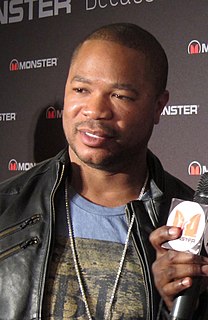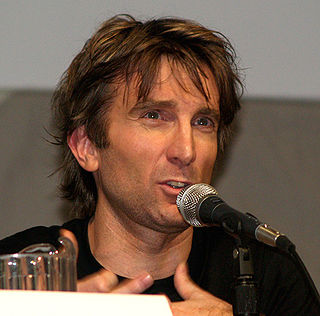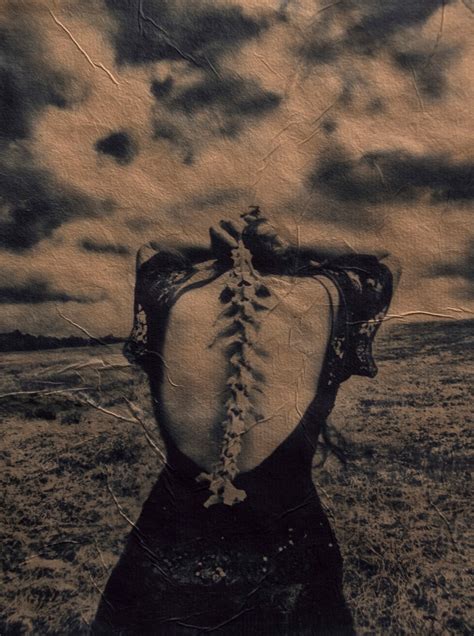A Quote by Ernst Haas
Living in a time of the increasing struggle of the mechanization of man, photography has become another example of this paradoxical problem of how to humanize, how to overcome a machine on which we are thoroughly dependent... the camera.
Related Quotes
Man is a machine, but a very peculiar machine. He is a machine which, in right circumstances, and with right treatment, can know that he is a machine, and having fully realized this, he may find the ways to cease to be a machine. First of all, what man must know is that he is not one; he is many. He has not one permanent and unchangeable “I” or Ego. He is always different. One moment he is one, another moment he is another, the third moment he is a third, and so on, almost without end.
Hopefully, you'll be able to find enough of an audience, each time, that you can keep working, rather than getting caught up in the Hollywood system, which can so quickly become about how much money something makes and how many people went to watch it. It's very alluring. It's such a powerful machine that's playing on you, the whole time.
Anthropology... has always been highly dependent upon photography... As the use of still photography - and moving pictures - has become increasingly essential as a part of anthropological methods, the need for photographers with a disciplined knowledge of anthropology and for anthropologists with training in photography has increased. We expect that in the near future sophisticated training in photography will be a requirement for all anthropologists. (1962)
I think you have to find how the machine can work for you. That's what I mean by "attaching yourself to the machine," 'cause the machine is going to be there, and you can rage against the machine, which is cool, but there's ways that you can benefit off the machine if you're savvy enough and you're sharp enough, smart enough. We all got to live and eat.
Everything that I see must become personal; otherwise, it is dead and mechanical. Our only chance to escape the blight of mechanization, of acting and thinking alike, of the huge machine which society is becoming, is to restore life to all things through the saving and beneficent power of the human imagination.
Waste cannot be accurately told, though we are sensible how destructive it is. Economy, on the one hand, by which a certain income is made to maintain a man genteelly; and waste, on the other, by which on the same income another man lives shabbily, cannot be defined. It is a very nice thing; as one man wears his coat out much sooner than another, we cannot tell how.
The problem of the novelist who wishes to write about a man's encounter with God is how he shall make the experience--which is both natural and supernatural--understandable, and credible, to his reader. In any age this would be a problem, but in our own, it is a well- nigh insurmountable one. Today's audience is one in which religious feeling has become, if not atrophied, at least vaporous and sentimental.
Extrapolated, technology wants what life wants:
Increasing efficiency
Increasing opportunity
Increasing emergence
Increasing complexity
Increasing diversity
Increasing specialization
Increasing ubiquity
Increasing freedom
Increasing mutualism
Increasing beauty
Increasing sentience
Increasing structure
Increasing evolvability



































